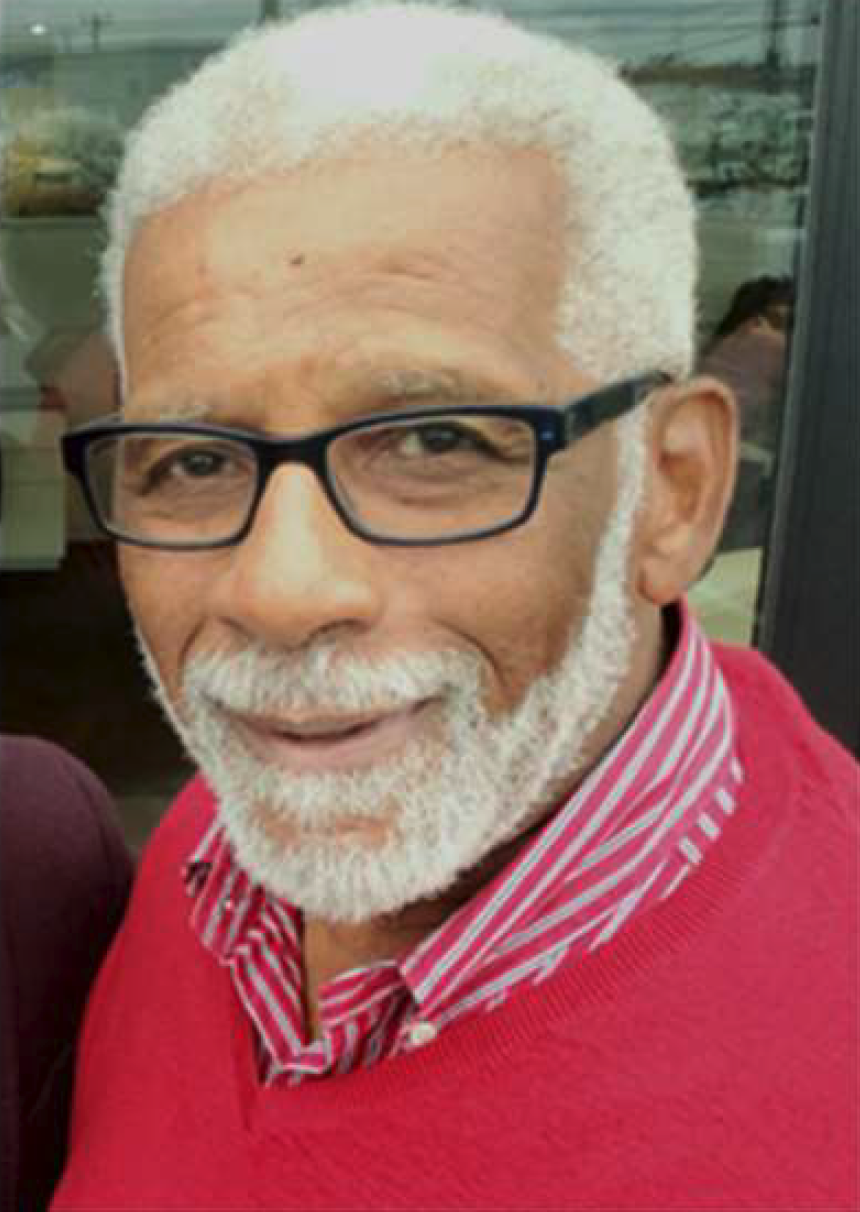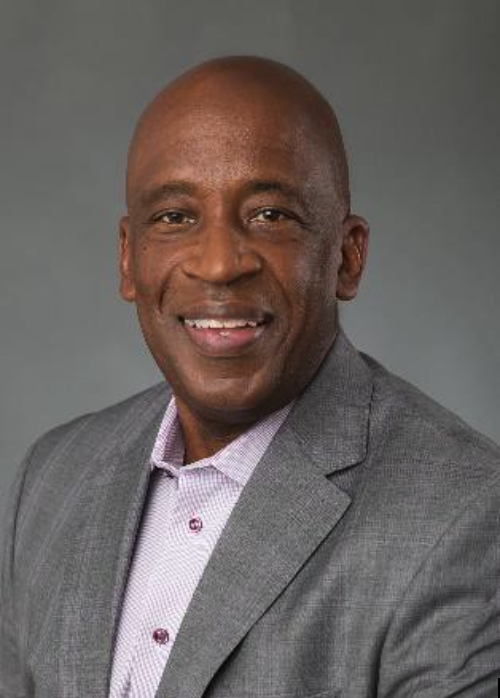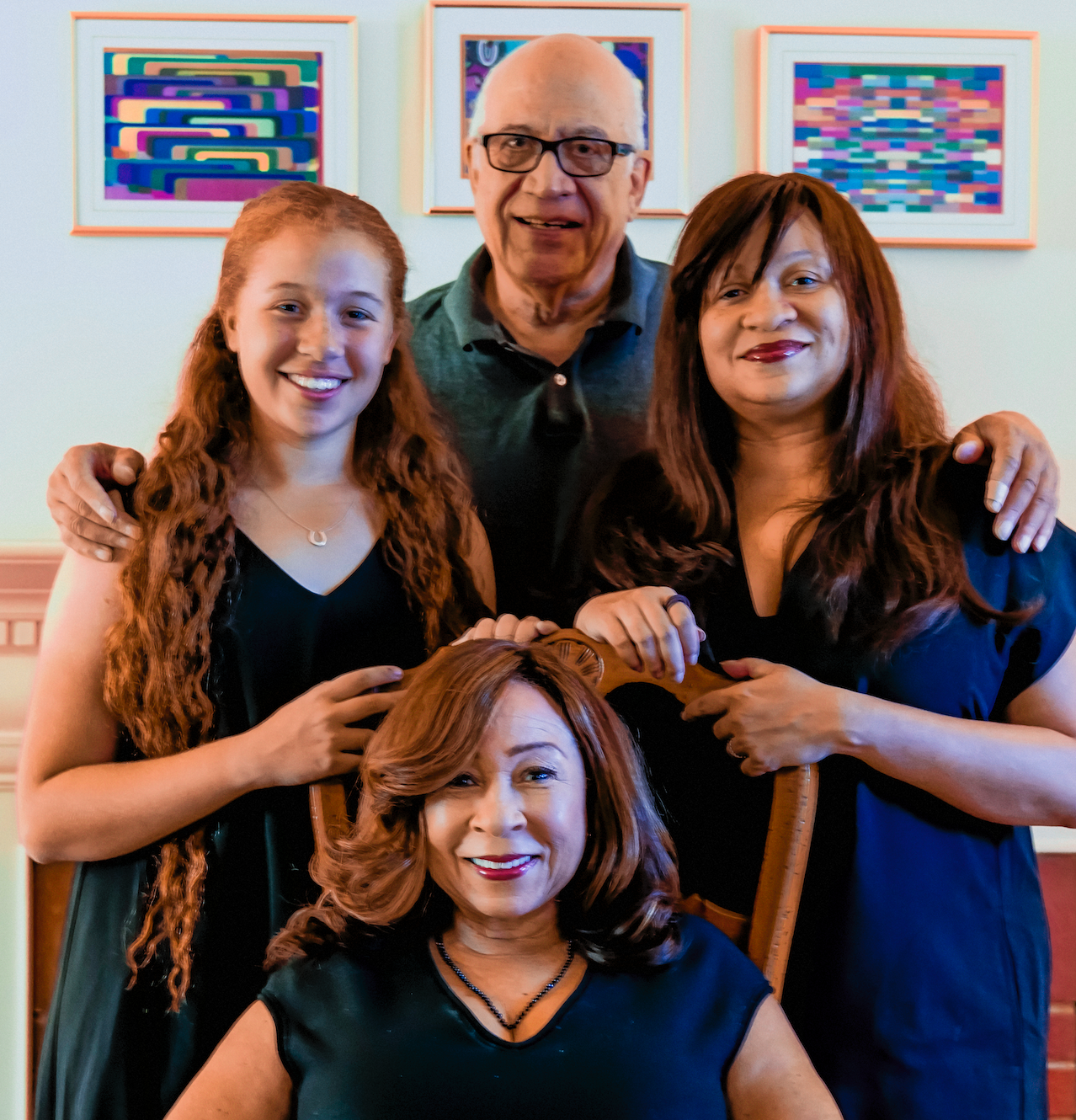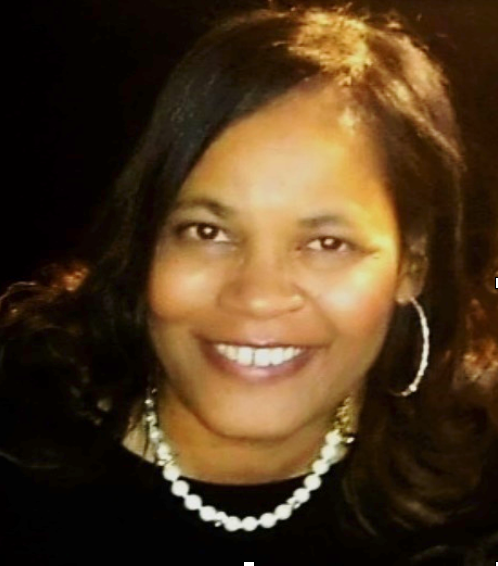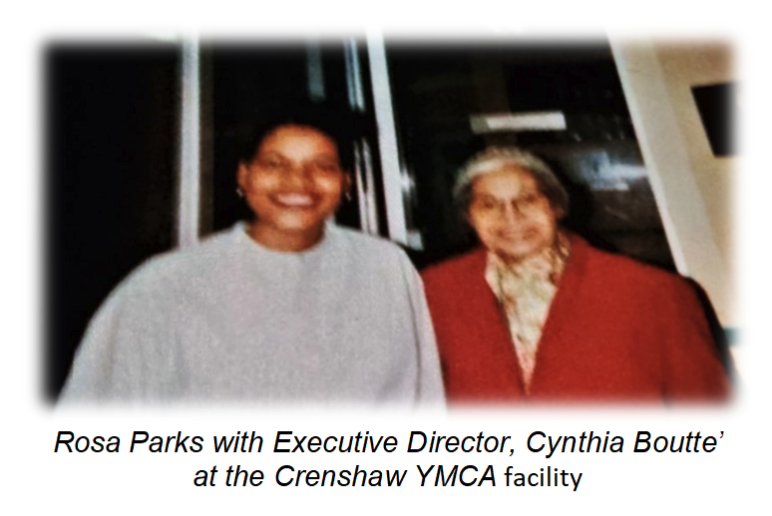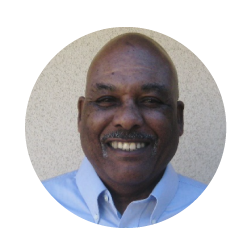Robert A. Wilkin
Hello Friends. I am Robert A. Wilkins, a recently retired 30-year YMCA executive-level professional.
First, Congratulations and Thank You for choosing to pursue the field of non-profit human services and hopefully considering leadership in the movement. I am certain that you will find it rewarding and beneficial to you and others in many ways.
I’d like to spend a few moments conveying my thoughts about why diversity and inclusion are important and why groups like the African American Resource Network are necessary and invaluable, not only for your career, but also for the LA Association, the broader African American community and communities of color throughout the Metro L A region. Along the way, I’ll also share a couple of highlights of my own career.
Leadership is a complex and often lonely place. “How can that be,” one might ask, “when the leader is usually in charge of and responsible for a lot of people – both staff and clients? The leader is the ‘center of attention.’ ” But, the loneliness of leadership is not about being by yourself or being alone; rather it is the feeling that most people do not understand or particularly care how the leader feels.
Leaders cannot share everything we experience because everything is not beneficial to those we are leading. Leaders cannot just ask for anyone’s advice about the trouble we’re having with people because we don’t want to talk behind their backs or violate confidentiality. Leaders can’t speak to just anyone about our fears, doubts, insecurities or weaknesses, because that could undermine confidence in our leadership.
The transactional aspects of leadership ---- goals, budgets, timelines, structure, flow, resource management, project management, task co-ordination --- are tasks and challenges most people simply do not have to tackle because, face it, most people are not in leadership roles. The circle of individuals that share the feelings and anxiety of leadership or that can offer advice or insights is small indeed.
Add to that the element of being an African American [or other person of color] in leadership. Historical stereotypes and assumptions, cultural insensitivity and bias, as well as systemic prejudice and racism introduce extra complications --- all of this increases the uneasy feelings of isolation and loneliness. That circle of persons to whom you can truly turn gets even smaller.
So, where can future leaders in the Y movement in Los Angeles go for the help they will need to maintain the stamina to excel along the often lonely road to leadership? One place is the African American Resource Network. It is here, with YMCA veteran leaders like Daria Price, that the management and operational information, encouragement, inspiration, confidentiality, wisdom and guidance that every African American leader needs can, and will, be found in culturally specific and relevant ways. This small group does know what it means to be African American in society today; and what it is like to be in leadership. This small group does know what it can mean to be African American in the Y movement, especially in Los Angeles, now and well into the future.
At the same time, AARN knows that because leadership is a unique road with limited travelers, you’ll likely have to break down a few geographical and tribal barriers to find the true peers and mentors who can advise you. Every person you meet, knows something that you do not know – even more so if they come from another cultural group. That is why an enthusiastic embrace of inclusion and diversity is indispensable for the thriving of future leaders of color in the LA Y, the L A YMCA itself, the general African American community and communities of color throughout Metro Los Angeles.
The AARN [and other cultural affinity groups] conveys a sense of recognition and respect for who we are; and a sense of value for what we have to offer collectively. As I stated earlier, on an individual basis, the small [and hopefully ever growing] circle of future leaders share fellowship and wisdom, offer compatibility and confidentiality, instill pride and invoke accountability.
During my time with the LA Association, [first as an Associate Executive at Ketchum-Downtown, then as Weingart Urban Executive Director, and finally back at Ketchum as Executive Director] we did not have a formal AARN. But, the few of us who were around - like Cynthia Boutte, Eric Mann, John Green, Daria Price, Greg Burks, among others – took the time to notice one another, made ourselves available to each other to talk through issues, learn from one another, blow off steam or have a good laugh together, and support one another’s efforts, both inside and outside of the Y.
The AARN also provides significant benefits for the LA Association, namely, strategic insights into community trends and needs; credibility and legitimacy to the general community, cultural competency and direct connections to the respected leaders and people in the African-American community. Community assessments, needs analyses and surveys are among the traditional ways that organizations like the Y have ascertained what to do in communities, but the information is much more accurate, relevant and precise when the information comes from people who live work and play in the community and who have standing in the community like members of AARN.
Furthermore, the African American community overall benefits greatly from the life and efforts of groups like the AARN. As a society, we have made great strides in all aspects of our life together, but African Americans are still underrepresented in leadership positions in many sectors. This is true of most communities of color as well.
The YMCA is well-known and respected for its leadership development programs. AARN’s efforts to ensure that African Americans are aware of, and take advantage of the multiple opportunities for training, development and advancement in YMCA leadership roles is invaluable to increasing the presence of African American leadership in all sectors of society.
Government agencies, corporations, national/regional non-profits in addition to grass-roots community groups look quite favorably upon YMCA leadership experience when they are recruiting people of color for Board seats, Advisory Council appointments, government commissions, Task Forces/Special Committees, and even candidates for elected office. All of them know that YMCA leaders of color are grounded in strong values and ethics, are equipped with excellent presentation/communication skills, possess experience in fund-raising, financial management, staff and volunteer leadership, program development and organizing skills.
I served as President and CEO of the YMCA of the East Bay in Oakland CA for 19 ½ years. During that time, many entities invited me to serve the community in other high-level leadership positions, largely because of my YMCA background and experience. Currently, I serve as Chairman of the Board of Beneficial State Foundation, an economic justice non-profit that is the owner of a $1.6 billion community bank operating in California, Oregon and Washington State.
I could go on for a long time [I am an ordained Baptist preacher] touting the advantages and importance of the African American Resource Network for the LA YMCA, the African American community at large
and each YMCA future leader who aspires to a life and career of intellectual rigor, variety, meaning and impact.
If you haven’t done so yet, join the AARN now and keep going
Always forward together,
Robert A. Wilkins
LeRoy R. Titus
As a child, LeRoy was a constant fixture at the Centre Avenue YMCA in his hometown of Pittsburgh, Pennsylvania. Nine year old LeRoy volunteered his time at the Y by folding towels in and serving as the unofficial mascot and greeter for the guests. As a high-school student, LeRoy was a member of the Hi-Y Club, a leadership program for students dedicated to “create, maintain, and extend, throughout the home, school, and community, high standards of Christian character.” He spent his formative years learning about the organization and was named Executive for the Weekend at age 15. During that transformative weekend, he was given the opportunity to act as Executive Director and run all aspects of the YMCA.
While matriculating at Lincoln University (PA), LeRoy studied biology and was set on becoming a physician. As a college student LeRoy was not far from the YMCA lifestyle. He was a staff member at Camp Kon-O-Kwee and provided programming for hundreds of eager campers. After graduating from Lincoln with a bachelor’s degree in Biology, he was awarded two fellowships for graduate school from Miami University and Brown University. He accepted the fellowship from Miami University (OH) and began his studies in bacteriology. He suspended his studies, and began working at the Welfare Department in Pittsburgh. His employment was abruptly interrupted when he was drafted in the United States Army in 1962. He did basic training at Fort Knox in Kentucky and was ultimately stationed at Fort Detrick in Maryland. Though he never saw combat, LeRoy remains a proud Veteran and patriot.
After his time in the Service, he returned to Pittsburgh at the request of his mentor and then Chief Executive Officer of Centre Avenue YMCA, Mr. James Burgett. Upon his return he was offered the position of Program Director. Though he had no intention of making a career as a YMCA executive, something happened that winter that changed the trajectory of his life forever. His passion for children and the community sparked a career in public service. He served at the Centre Avenue YMCA from 1964 to 1969. He was offered a position as the Executive Director at the Kiwanis Westside YMCA in Fort Wayne, Indiana so he and his wife, Anna, along with their eldest daughter Shelley, left Pittsburgh for Indiana in the summer of 1969.
He stayed at Kiwanis Westside YMCA from 1968 to 1972. He and his growing family now included another daughter, Sherre. His time in Indiana was met with a tremendous opportunity to grow the organization and create programming that addressed race relations, preschool education, and family development in housing projects. Through his efforts, he was able to build a multicultural staff and fundraise for the erection of a permanent building. Then, California came calling. In 1971, while on vacation in Los Angeles with his family, Mr. Titus was asked to interview for the Chief Executive Officer position at the Crenshaw YMCA, which is located in a more affluent area of the city. He respectfully declined the offer because he wanted to devote his energy to disadvantaged communities instead. As a result of the Watts Riots, the organization established the South Central YMCA, which serviced the communities most affected by the social unrest. He happily accepted the position of Executive Officer in 1972 and headed West to begin this new chapter. He immediately fell in love with the community and the residents living in the service area near the facility. The pulse of gang violence was just beginning to vibrate and he saw the potential to expose the children and community members to more.
Harkening back his days at the Centre Avenue YMCA, Mr. Titus secured $300,000 from Ben Weingart to purchase vans to bring the programs directly to the community. Programs were conducted in local parks, schools, housing projects and churches, a model that still exists today. The vans were also used to transport children to and from the community ensuring that they were able to attend camp, enjoy field trips, and experience other areas of the Southern California landscape previously unseen by them. He was tasked to merge the South Central and Southwest branches into one unit forming the Southside YMCA. In doing so, he needed to combine two very different boards with the hope of developing a plan to construct a comprehensive facility to tackle the health and wellness issues plaguing the inner city. Studies showed that the highest incidence of death due to heart disease, stroke and diabetes occurred in the Southside YMCA service area.
Perhaps the most significant contribution made by Mr. Titus is the construction of the Weingart Urban Center YMCA. This 65,000-square-foot crown jewel, located in the heart of South Central Los Angeles, and in the center of a once gang infested area, stands as a beacon of light, hope, and safety for the community. Through the efforts of the now combined boards and the YMCA of Metropolitan Los Angeles, $6.25 million dollars was raised for construction of the facility. Also, hundreds of volunteers and staff members were hired from the local area to run the facility. During his tenure with the YMCA, he was the head of the Career Development Program (CDP). This program training track prepared new entry-level staff to become certified YMCA directors. Through innovative programming, a hands-on approach, and substantial community involvement, he was able to transform thelives of hundreds, if not thousands of people.
He has vast experience as a community organizer, and has held executive leadership positions with various organizations, including, serving President of the National Conference of Black and Non-White Staff and Volunteers (BAN-WYS), as the Deputy Foreperson on the Los Angeles County Civil Grand Jury, Senior Deputy for Constituent Services, President of WSDC Knights of Peter Claver, and countless others. He and his wife, Anna have been married since 1966. Together, they have three adult daughters, Shelley Meredyth, Sherre Mishel, and Shelbi Melany (yep, they did that...on purpose) and two sons-in-law, Bobby and Byron. Though they love their children, they are completely enamored with their 5 grandchildren, Mecca, Sean, Kesha, Bethany, and Olivia and their three grand doggies Baine, Cole, and Candy.
Eric K. Mann
Since July 2011, Eric Mann has served as President and CEO of the YMCA of Florida’s First Coast in Jacksonville, FL.
Prior to his arrival in Jacksonville, Eric was:
- President & CEO of the YMCA of Greater Pittsburgh (2003-2011)
- Senior Vice President and COO of the YMCA of Greater Charlotte (2000-2003)
- Vice President of Operations/Special Services of the YMCA of Greater Charlotte (1998-2000)
- Associate Vice President for the YMCA of Greater Cincinnati (1994-1998)
- Branch Executive at the Westchester YMCA in Los Angeles (1989-1994)
Eric’s prior YMCA experience also included positions as Associate Executive Director at the Weingart Urban Center in Los Angeles; Senior Director at the New Haven Central YMCA in Connecticut and Youth Director at the Market Street YMCA in Asheville, NC in 1981.
LA YMCA Highlights:
- Assoc Exec at Weingart Urban developed a New Membership program that resulted in over 20% growth in 1988.
- Became the first African American Branch Executive at the Westchester YMCA in 1989 – Which was one of the primarily affluent white communities in the US at the time.
- Raised over $1.1 mil to expand and renovate the branch in my first-ever capital campaign exceeding the $1.0 goal
Eric is married to Branita Thompson-Mann and they have one daughter, Erica, who is a graduate of Hofstra University.
Chloe Beebe, Phil Hart, Ayanna Hart, Tanya Hart
At the Hart family home in Denver. Phil Hart is a Denver native who met his wife Tanya at Michigan State University. Mr. Hart is a graduate of Colorado University where he was an honors student and varsity athlete.
Tanya Hart hails from Muskegon, Michigan.
Ayanna Hart was born in Lansing, Michigan. Her daughter Chloe Beebe was born in Los Angeles.
Each of these Hart family members has been members of the Hollywood YMCA over the years.
Phil Hart served on the Hollywood Y board of managers and in 2004 Phil and Tanya Hart received the Human Dignity Award at the annual YMCA of Metropolitan Los Angeles MLK, Jr. breakfast. Mr. Hart is a veteran author, educator, filmmaker, urban planner, and developer.
Tanya Hart is an Emmy Award and Peabody award-winning host and producer.
Ayanna Hart is COO and partner of Fancy Film a boutique post-production company in Silver Lake.
Chloe Beebe is a junior at UC Santa Cruz who has her own program on the campus radio station KZSC 88.1 FM. Her past summer jobs have included working at the Hollywood Bowl.
Phil Hart is a lifelong member of the YMCA having grown up in and worked at Denver’s Glenarm YMCA where his father served on the board of directors.
The Hart family are longtime residents of Los Feliz.
Cynthia Boutte’
Cynthia Boutte’ supports the notion that now more than ever African American leadership positions within the Y should be advocated and encouraged to support the groundwork for future leaders. Programs such as the African American Resource Network are essential to help guarantee equal opportunity and facilitate the success of both youth and adults who strive to make a difference. It was through the completion of two national YMCA Leadership Training Programs (the Career Development Program and the Executive Development Program) that Ms. Boutte’ was given her first professional job, fresh out of college selected as Executive Director at the Crenshaw/28thStreet YMCA. With this assignment, Cynthia Boutte’ became the first African American woman to become appointed as Executive Director of two inner-city Los Angeles YMCA's concurrently. Ms. Boutte’ utilized the acquired skill sets of financial development, fiscal control, contract management, strategic planning, board development, project management, and staff development to oversee what had previously been a male managed organization. Ms. Boutte’ considers the African American Resource Network a prime example of a beneficial resource necessary to secure the Y’s history and programs that continue to service our communities.
Cynthia Boutte’ recognizes the Y as an organization that has historically been an essential part of the African American community. During her tenure, she understood the importance of overseeing activities at the historic 28th Street YMCA location. This location initially provided housing by being one of the first places African American men could live once they arrived in Los Angeles. Designed by Black architect, Paul R. Williams and beautifully crafted with ornate carvings of Frederick Douglas and Marcus Garvey on its rooftop corners, this location further served as yet another reminder and inspiration for Ms. Boutte’ to continue leading fundraising efforts to ensure the preservation of both the 28th Street and Crenshaw facilities. The 28th Street building has been declared a Los Angeles Historic-Culture Monument (2006) and is listed in the National Registry of Historic Places (2009.)
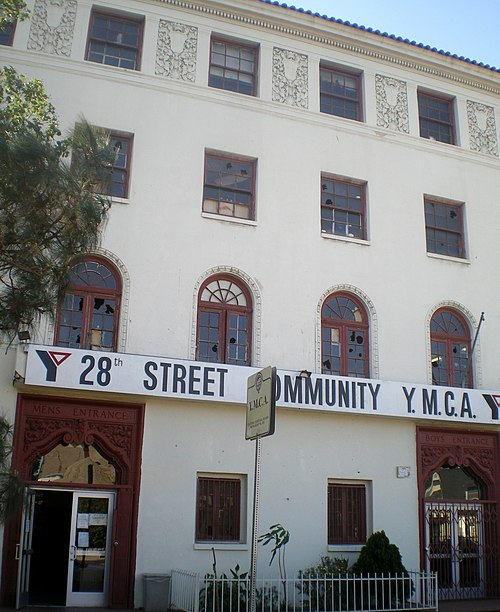
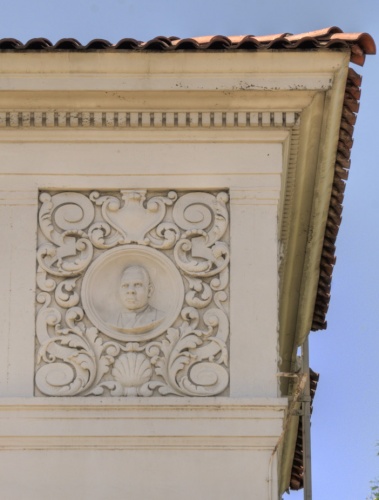
Ms. Boutte’s thirteen-year service at the Crenshaw/28th Street YMCA helped to lay the foundation of her continued career success. Support from individuals within the View Park, historic Leimert Park, Baldwin Village, and Crenshaw communities surrounding the Crenshaw Y provided encouragement and nurtured the accomplishment of many of its successful community outreach programs and its members. Under the direction of Ms. Boutte’, the Crenshaw/28th Street YMCA was championed by an alliance of a prestigious Board of Directors which included: Dr. Genevieve Shepherd, Laker great James Worthy, and several influential professionals including doctors, attorneys, educators, and financial advisors. Some of her greatest accomplishments while at the Crenshaw/28th Street YMCA included the implementation of the expansion of satellite programs conducted on the campus of Tom Bradley Elementary School (formally, Dublin Avenue School) as well as the establishment of a pre-school program to benefit these neighborhoods. One of Ms. Boutte’s career highlights while serving as Executive Director was the visitation of Ms. Rosa Parks to the Y’s after school program. She served on the National YMCA Board for Urban Communities as well as the Los Angeles YMCA Child Care Cabinet. Ms. Boutte’ also spearheaded successful annual fundraising campaigns to further enrich community outreach. Under her guidance both YMCA branches served over 3,000 individuals a year with its youth and family programs.
Cynthia Boutte’ has been employed for the past twelve years at The Parsons Corporation serving as Commercial Lead, responsible for $5.3 billion in construction endeavors. The Parsons Corporation is a global defense, intelligence, security, and infrastructure engineering corporation. During Ms. Boutte’s tenure with the Y, it was the guidance of established, influential African Americans both in the surrounding community as well as within the 28th Street and Crenshaw YMCA neighborhoods which helped to influence her career achievements and the successful careers of many other Y alums.
John Green
John Green retired from the YMCA after 38 years of employment. John began his career in Pasadena, CA and after 4 years moved to the Seattle YMCA as Executive Director of the East Madison YMCA. He moved to the YMCA of Metropolitan Washington as Executive Director of two Branches in Arlington, VA. John then moved to the YMCA of Philadelphia and Vicinity as a Branch Executive and then to YMCA of Metropolitan Los Angeles where he worked in various positions leaving as a Group Vice President to join the YMCA of the USA as Resource Director with YMCAs in Arizona, California and Hawaii. He retired from Y-USA in December 2010.
In 2004 a group called Los Amigos (Carolyn Creager, Jose Casado, Soukie Chanhdara, Jo Harris, Maurice Horsey, Lowell Overby, Jo Harris and John) started meeting to develop a mentoring program to work with multicultural staff who were on track to become CEOs, COOs and other Senior level positions in the YMCA nationally. That program launched in 2006 as the Multicultural Executive Development Program (later MEDI). That has led to other national mentoring and support programs such as EMLI and AARN.
John and his family live in Altadena CA. He has 3 grown children and 4 grandchildren. Recently he began his service on the National YMCA Alumni Board and the local Y Alumni Lyon Chapter Board.
After retirement John enjoys travel, reading and barbecuing.

Dr. Genevieve Shepherd
As the past principal of Tom Bradley Elementary and a noted motivational speaker, Dr. Shepherd was known for her strong listening and speaking skills. But when she was inducted into the YMCA Golden Book of Distinguished Service in 2005, she was struck speechless, perhaps for the first time in her life.
Because of her unshakeable faith in the YMCA, Dr. Shepherd made sure that her campus hosted YMCA after-school programs for more than 20 years. To expand programming, she worked with the Crenshaw Family YMCA to bring two modular buildings to her school. She helped to gather support for the YMCA from numerous community churches and businesses.
Dr. Shepherd’s father was a minister, as was her husband; however, she believed the YMCA’s principles were for people of all faiths. She said the YMCA teaches honesty, fair play, and respect; skills that will help children all their lives.

